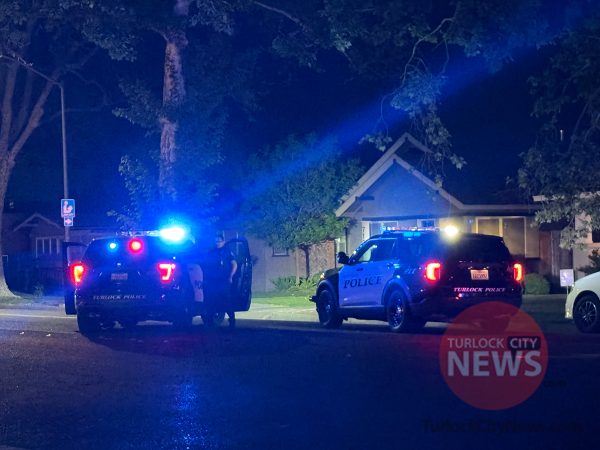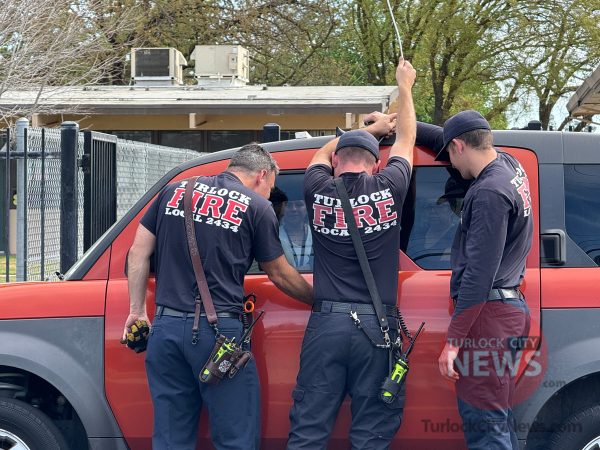Measure S, or as I like to call it Measure K part II, is an important issue that needs to be debated. It disappoints me that when it comes up there are very few people who are willing to question the conventional wisdom and the assumptions of the measure. I thought at least one person should give some serious thought on the issue of whether or not we want to tax ourselves that does not end with one side saying “well how else are we going to fix the roads” and the other side saying “we can’t trust the bastards.”
In 2006, I opposed Measure K, it was a terrible plan that looked as though two guys after a long night of drinking wrote it down on a bar napkin. Measure S is a markedly better plan than Measure K was, however, there are some serious flaws and ridiculous claims made by the supporters that need to be answered before I am willing to even consider voting for it.
- Is Stancog going to issue revenue bonds? If so, how much of the total package will we pay in interest and fees?
Often times with sales tax revenue government agencies will issue bonds in order to get the money immediately in order to begin the projects right away. Most of the time this works fine. However, with the current issues in the credit markets this is not the case. For example, the state of California is unable to issue tax anticipation notes to cover their cash needs through the end of the year and has reached out to the federal government for a loan to cover the difference. This is indicative of the wider credit markets and will pose serious issues with issuing revenue bonds based on a sales tax at the beginning of what will most likely be a recession.
The supporters will try to say only 1% can be used on administrative fees but this is misleading because if they do plan to issue bonds they will spend at least 5% of the total revenue in interest payments and if the credit rating of the county and cities within the county is not the top grade they will most likely have to purchase insurance as well to offset the lower credit rating. There can be a perfectly reasonable reason to bond out the eventual revenue, such as construction cost inflation being larger than the interest rate. But, it is an issue that is not even being considered in the arguments for or against. I would be willing to bet that no one has even looked at a present value calculation of the projects.
- What has happened to the increased sales tax revenue taken in by local governments as the result of the increase in the price of gas?
As I’m sure most of you know, gas is subject to three separate taxes, a federal excise tax, a state excise tax, and the normal sales tax. In the last few years gas has gone from $2 dollars a gallon to more than $4 a gallon as a result the state, county and city has already more than doubled the amount of sales tax they take in as a result of gasoline purchases. Where has all this extra revenue gone? It has gone into the general fund and been spent on other services and it allows the city and county to still claim they have don’t have any money to repair the streets. If our elected officials refuse to make infrastructure a priority even when they are taking in double the revenue from gasoline why should we agree to tax ourselves?
- Where are the matching funds from the state or federal government going to come from?
The state of California has a $15 billion dollar budget deficit; the budget they passed last month is not balanced. Our legislature has agreed to use accounting tricks to give the appearance of being in balance. The supporters of Measure S believe that the state will match our local funds but they refuse to acknowledge that there isn’t any money for them to match with. California has a spending issue in the last four years the state budget has gone from $108 billion to more than $140 billion. There is going to need to be severe spending cuts in order to keep the state afloat and it will make the same decisions it has in the past, to forgo infrastructure improvements.
The federal government isn’t any better, with a more than $400 billion deficit and $53 trillion in unfunded long-term liabilities infrastructure is low on the list when it comes to spending priorities. Also, there is about to be a large backlash against the earmarks and pork that has become commonplace in the last eight years. Money as we currently know it is going to become more scarce.
- How does taking from one person and giving to another create jobs and/or economic growth?
The supporters of Measure S claim that taxing ourselves will create jobs. This is the most blatantly false statement being made and violates every tenant of economics. Taxing a person through a sales tax removes discretionary income from their pocket and gives it to the government, in this case, to improve our roads. By taking that money away from one person and giving it to the government zero economic growth occurs. Whatever job is created to improve the roads is a job lost by the $770 million being removed from the private sector creating a net zero in job creation and economic growth.
These are questions that no one is talking about when it comes to Measure S. Understandably so, there are other newsworthy items out there but, I want to leave everyone with one final thought; the fastest way from a recession to a depression is to raise taxes.






